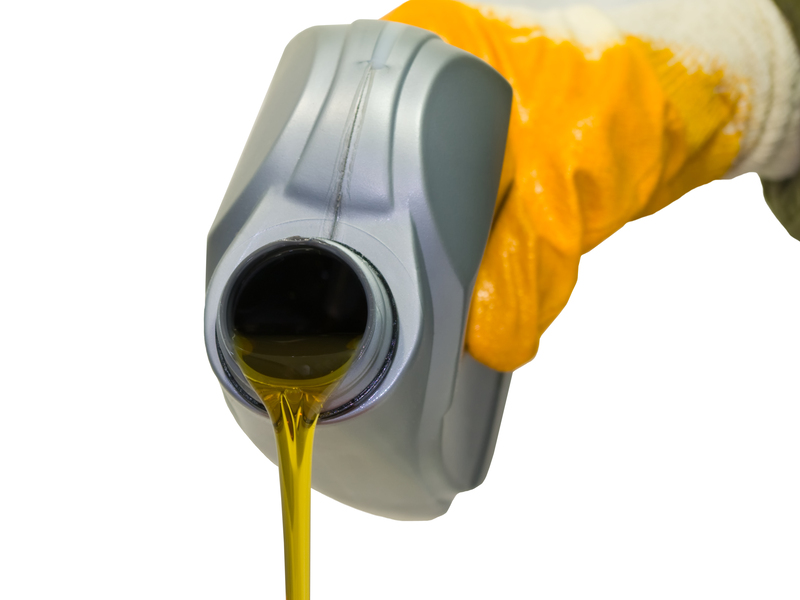Utilizing Substitute Means of Rubbish Collection and Disposal Other Than Through the Municipality
Posted on 08/09/2024
It is no secret that waste disposal and management is an issue facing municipalities across the United States. As populations grow, so does the problem of rubbish collection and disposal. In today's increasingly consumer driven society, households are producing more waste than ever before. The resulting burden of disposing waste is something that municipalities must face head on in order to maintain a healthy, sustainable environment.
Fortunately, there are many substitute means of rubbish collection and disposal available to municipalities other than through traditional municipal services. These methods are often faster, cheaper, and more efficient than relying on the municipality for all of your rubbish collection needs. In this article, we will explore some of the most popular substitute means of collecting and disposing of rubbish and how they can benefit both individuals and municipalities.
Backyard Composting
One way to reduce the amount of waste sent to landfills is by composting it in your backyard. Composting is the process of breaking down organic matter into a nutrient-rich soil amendment through the combined use of oxygen, moisture, heat, and microorganisms. It can be done on a small scale in your own backyard with little effort or expense.
When done properly, composting can reduce household waste by as much as 40%. It also offers environmental benefits such as reducing methane emissions from landfills and improving soil quality. Many municipalities offer compost bins to residents for a nominal fee, along with providing resources to help them get started.

Recycling Services
Another alternative to relying solely on municipal services for rubbish collection is utilizing private recycling services. These services will collect items such as paper, aluminum cans, plastic containers, glass bottles, cardboard boxes, paperboard cartons, and other recyclable materials from your home or business for free or at a discounted rate. This not only reduces landfill waste but can also lead to cost savings over time due to reduced disposal fees.
Many municipalities have contracts with local businesses that provide recycling services at no additional cost to homeowners or business owners. If your municipality does not have these contracts in place, you may wish to contact one directly to find out what services they offer.
Hazardous Waste Disposal
In addition to traditional garbage collection services offered by municipalities, there are also options available for disposing of hazardous materials such as batteries and paint products in a safe and responsible manner. Private companies are available that specialize in safely disposing of hazardous materials for an additional fee or sometimes even free of charge. This can help ensure that material that could potentially be harmful or present an environmental hazard is disposed of in a secure manner without putting home or business owners at risk for contamination or legal liability issues related to improper disposal practices.
Donations
Rather than tossing items into the trash bin, consider donating them to charities and organizations that are able to put them to good use rather than end up cluttering landfills. Donations can range from clothing and furniture to appliances and electronics that are still usable but no longer needed by their current owners. Donating these items instead of trashing them can help reduce landfill waste while providing needed assistance or supplies to those who may need them most. Many charities provide donation boxes at convenient locations or will even come pick up donations from homes or businesses if requested.

Pros & Cons
There are several pros associated with using alternate means for rubbish collection and disposal outside of municipal services:
o Reduced landfill waste - Utilizing alternate methods such as recycling and composting helps reduce the amount of solid waste going into our landfills which helps protect our environment from pollutants associated with improper disposal practices;
o Cost Savings - Recycling programs often offer refundable deposits which can result in savings over time depending on how much material is recycled; hazardous materials can often be disposed of at a much lower cost than with traditional landfill disposal methods; Donation programs provide needed assistance while helping reduce landfill waste; Private companies may offer discounts when multiple types of materials are collected at once;
o Improved Environment - Composting provides valuable nutrients back into our soil helping improve its overall health which supports beneficial flora & fauna; Recycling helps conserve natural resources; Hazardous materials are disposed of safely without contaminating water sources (lakes & rivers).
However there are some potential drawbacks associated with these methods as well such as: Not all items are accepted by recycling facilities; some hazardous materials require specialized treatment before being released into the environment; donation boxes may not accept larger items due improper storage capacity; compost bins attract bugs & animals posing health risks; private companies may not be as reliable as expected resulting in uncollected materials attracting pests/vermin .
Takeaways
The takeaway from this article is clear: Utilizing alternate means for rubbish collection & disposal outside traditional municipal channels has numerous benefits including reducing landfill waste, saving money on disposal costs , conserving natural resources , providing needed assistance , preventing pollution ,and promoting healthier environments . While there may be certain drawbacks associated with using these methods , they should not be ignored since utilizing these alternatives presents opportunities for improvement on many levels .
Latest Posts
Local Perspective on Richmond Living
Wise Purchase Tips for Richmond Real Estate
The Environmental Impact of Modern Consumer Waste and Recycling Solutions





